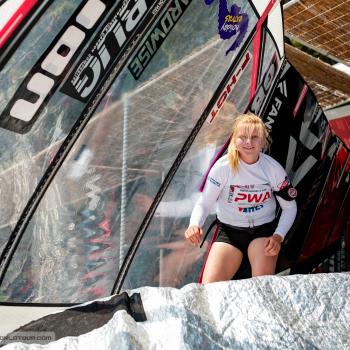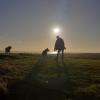Getting on your journey to a beach-ready body, as well as feeling great physically and mentally can seem like an uphill struggle. But we can learn a few tips from the athletes..
A body scan to measure fat v lean muscle
Before you begin your healthy living regime, it’s a good idea to see where you’re at with a body scan to assess where the pockets of fat are, and have a benchmark to measure your progress. A visit to Professor David Reid in Harley Street the UK’s leading expert on DEXA (Dual-energy X-ray absorptiometry) can provide you with a Body Composition Scan.
DEXA scanners are used to check bone density, but certain models – are also equipped with ‘Advanced Body Composition’ capabilities and provide an extremely accurate indication of total fat in the core region.
Body scans are a useful tool for athletes and bodybuilders, but they also serve as an important indicator of your future health, as too much of the wrong type of fat around your middle increases your risk for diabetes, heart disease and cancer.
Will I lose weight?
Depending on how much you train, and what you eat, your body’s ratio of fat can change over a matter of weeks, as your percentage of lean (muscle) mass increases, and your percentage body fat falls.
Once you reach your healthy weight, or if you are just in need of toning up, your weight will tend to remain the same as the fat is replaced by muscle, and your physique takes on a more sculpted look.
The mindset of an athlete
Harness the single-minded drive and determination of the athlete. Clinical and sports dietitian Rick Miller, says, ‘It is tough to get in shape, especially if you’ve been out of shape for a while. Willpower, tolerance or general ‘mental toughness’ levels for making nutrition, exercise or lifestyle changes is what separates the athletes from the rest of us. They accept that ‘elbow grease’ will be needed to get the job done and they don’t let fear stand in their way.’
To stay healthy, the amount of exercise you need is less than you think.
- A minimum of 150 minutes of exercise per week is recommended
- Include this is your day, such as walking to and from work, a short workout in your lunch hour and a late evening walk.
Put yourself first
Rick says, ‘A little ‘me first’ at times can be actually be your best ally. Put everyone else before you and your health will suffer, then everyone else including friends, family, work will also suffers in some way. I like to call this the ‘ripple effect’. Whether that’s having no energy to work at your best, not feeling confident enough to attend social gatherings, feeling low or getting sick more often than you should.
What do athletes eat?
Protein Tips
- Eat Greek yoghurt in the morning with muesli and fruit, rather than plain breakfast cereal and milk. This will help enhance the protein content of a meal.
- Try tinned sardines, these little fish are rich in protein, the olive oil is good for heart health, and the eating the tiny bones in the fish gives you a calcium boost.
- Fill in the gaps with a reputable brand of protein supplement. Always read the label carefully, take the recommended serving size and don't be tempted to take far more than is necessary.
Protect against wear and tear
Whatever your age and fitness, inevitably the impact of repetitive exercise on our joints and muscles can cause injury.
To protect yourself against this, you may want to consider seeing Prof Reid for a bone density scan to assess your risk of the bone thinning condition osteoporosis, or if you have a knee, foot or ankle problem, then consultant orthopaedic surgeon specialising in feet, such as Haroon Mann can recommend treatments at his clinic in Harley Street.












